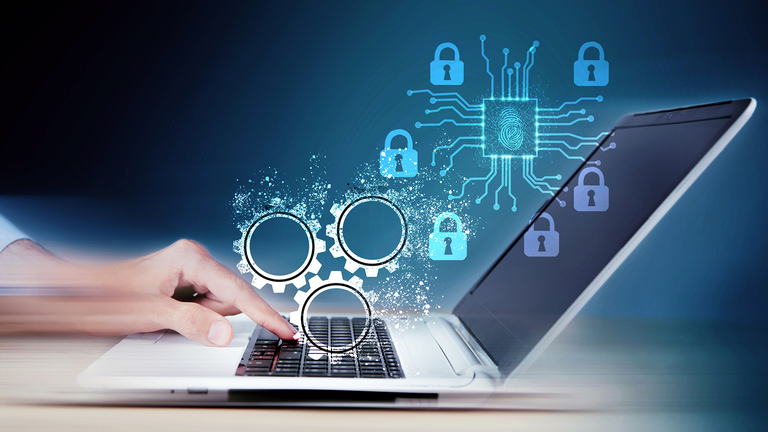The internet is not what it used to be even a decade back. There are now several threats out there that can steal your critical information, bank details, and compromise your online privacy. Every time you use the internet, whether from a desktop or mobile device, you could be giving away key business and personal information. There have been so many incidents of data breach to online tracking. It has become harder to protect data and keep our online time private.
There are still several things you can do to protect your data. Read this guide to find out how to protect your data online.
Risks of Not Protecting Business and Personal Privacy on the Internet
A malicious third party can infiltrate documents and data that the employees create, store, access, and share across the organization. When they gain access to business and private information, you will be at risk of data and even financial loss. Data breaches can be catastrophic for a business, which is why you must protect data on your computer and also protect customer data. There can be regulatory fines as well if you cannot protect the data or information of your customers.
There are serious risks for individuals as well. When your data is breached, a cybercriminal will be able to use your identity and can access your private account and personal information. Data thieves and malwares can do anything like steal your social security number, for example. Not just steal financial data, the person can even harm your personal image.
The data breach at OnlyFans is a classic example. On websites like these, content creators can share videos, images, and live streams with their fans to make money. A data breach disclosed the details of many content creators, including their names, phone numbers, emails, address, and more. Cyber security faced a tough time trying to detect the source. Customer data leakage on websites can cause serious harm.
Tips for Protecting Business and Personal Privacy on the Internet
Thankfully, you can still protect data privacy and stop data loss prevention. Make a few simple changes and avoid doing some mistakes and you will be able to make you connected to the Internet usage safer. Using a strong password is a good start. But some hackers may be able to still find a way in. So, it is essential to do more to safeguard your internet privacy, personal, and business information.
1. How to Protect Your Business Data?
Did you know that small businesses are at a higher risk? 71% of data breaches target small businesses and the average cost of fixing this can be as high as $149,000. Here’s what you can do to protect against data loss-
- Use strong passwords and two-factor authentication – Check your passwords. Make sure that it is strong. A strong password should have a mix of numbers and symbols. It should also have a combination of upper and lower-case letters. Do not keep a passwords list on your computer or mobile device. A two-factor authentication will make it safer.
- Keep software and systems up-to-date – Always have a schedule for updating your systems periodically. Ensure that you have antivirus software and that it is the latest version.
- Implement encryption and data backup solutions – Encryption will protect your business data and critical information. It is also a good idea to backup the data regularly. You can keep the backup in an external hard drive.
- Educate employees about cyber security best practices – Your employees must also be aware of the threat of privacy and data loss. Get an expert to show them about the cyber security best practices.
- Use a virtual private network (VPN) when accessing sensitive data – Common browsers like Firefox, Google Chrome, and Safari can also collect information about your online activities. A secure VPN will encode your browsing. Hackers won’t be able to gain access. Always use a secure VPN in common areas like an airport.
2. For Individuals
Cyber criminals are always looking to steal personal and financial information. By stealing your identity, they can often access your banking details, obtain information on loans or credit cards, and harm your credit rating. In fact, according to an estimate by the Australian Cyber Security Centre, there is $300 million worth of loss every year in Australia alone from cybercrimes and phishing scams.
- Use unique passwords for each account and two-factor authentication – A strong password will give decent protection. It is best to also set up a two-factor authentication. This will give you an additional layer of protection for your user data.
- Be cautious when sharing personal information online – Be careful when you are posting on social media accounts. Never post intimate details. It is best to avoid details like your address, hometown, and even your birthday. Never announce publicly that you are going on a holiday as everyone will know that your house will be empty.
- Use antivirus and anti-malware software – Your computer must always have anti-malware and antivirus software. Go for paid versions and update them regularly.
- Regularly review privacy settings on social media and other online accounts – Check your privacy setting. This will tell you who is seeing your posts.
- Use a VPN when accessing sensitive information or using public Wi-Fi – Be careful when using a free public Wi-Fi network as most of them don’t have adequate security measures. Others using the same network may access your activity easily. So always use a secure VPN to safeguard your online activity.
Your identity and security are extremely valuable. Never be negligent because the consequences can be serious. Remember, there are real cyber security threats out there. So, take all protective measures. Think of how to protect data privacy and do everything you can to make your online presence safer.
